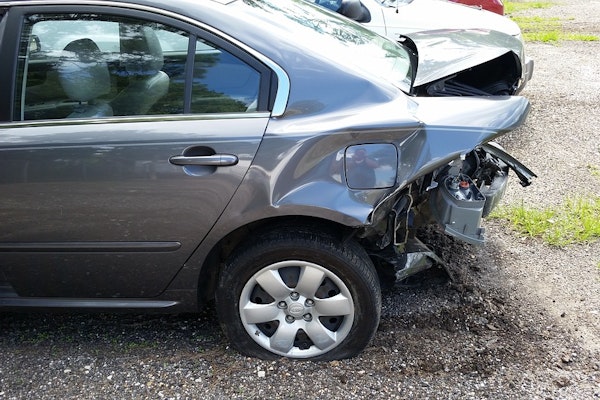
Car Tech is Exposing Tales Spun By Insurance Fraudsters
The story began with a 20-year-old Manitoban saying he’d fallen asleep at the wheel in a newer model Chevy Silverado, veering off the road and crashing into a few parked cars.
February 18, 2022
Auto
Fraud
Technology

How Insurtech Digitization, Adaptability Could Drive Change
2021 was a historic year for investment in insurtechs. Funding reached a record-breaking $15 billion in Q3, according to Forrester ‑ more funding than in 2019 and 2020 combined. As this booming market evolves, the value of innovation by insurtech startups is becoming clear.
February 16, 2022
Technology

How AI Accelerates Insurance Claims Processing
The immediate aftermath of a vehicular crash is difficult for all parties involved. The drivers have to process the trauma, address injuries with medical attention, exchange information, and figure out how to get their damaged cars repaired or replaced.
February 11, 2022
Auto
Technology

Digital Transformation Done Right
Starting in March 2020, nearly every company experienced a digital transformation—whether they liked it or not. The pandemic ushered nearly all transactions and interactions online literally overnight.
February 7, 2022
Technology

What Big Tech Can Do For Insurance
That technology will be the fuel that powers the insurance industry machine is inevitable. And with exciting innovations in AI, data and cloud computing, the dreams of many insurers can become reality.
February 4, 2022
Technology

Tesla Recalls Nearly 54K Cars That May Roll Through Stops
Tesla Inc (TSLA.O) will recall 53,822 U.S. vehicles with the company’s Full Self-Driving (Beta) software that may allow some models to conduct "rolling stops" and not come to a complete stop at some intersections posing a safety risk.
February 2, 2022
Auto
Subrogation
Technology

Unlocking The Power Of Conversational Data Using Natural Language Processing
The nostalgia bug bit me when I heard "The Matrix Resurrections" was set to premiere at the end of December. To prepare for its release, I rewatched the prior movies. I was surprised to find that these movies captivated me in a wholly different way than when I first saw them.
February 1, 2022
Technology

Will Customers Turn To Big Tech?
Would people go to companies like Amazon, Facebook or Google for insurance? Zillow or Trulia for renters insurance? CVS for health insurance?
January 31, 2022
Technology

5 Predictions For P&C In 2022
The insurance industry faced a wake-up call when the pandemic exposed just how unprepared insurers’ digital capabilities were in a crisis. But, in the past two years, particularly in 2021, the industry has accelerated its digital development, making significant leaps forward in technology investments, workforce evolution and strategic planning.
January 28, 2022
Technology

4 Risktech Trends To Watch In 2022
As we usher in a new year, insurers and risk managers alike will continue to focus on exploiting technology advances to prevent and mitigate risk.
January 28, 2022
Risk Management
Technology

Insurance Technology: 20 Trends For 2022
Here are the insurance technology trends, such as automated underwriting and virtual assistants, that will shape our industry in 2022.
January 27, 2022
Technology

Best Practices For Preventing Fraud In The Digital Age
Insurance carriers have witnessed a dramatic increase in consumers’ acceptance of digital activity compared to the pre-pandemic levels of early 2020. We expect these accelerated levels are only going to increase.
January 27, 2022
Fraud
Technology

A Conundrum: Insurance Requires Bias But Must Be Fair
Insurance in the U.S. goes back to the mid-1700s and Benjamin Franklin. It has become one of the most essential parts of our lives and one of our most important economic industries.
January 25, 2022
Technology

Blockchain-Based Insurance Claims To Exceed $10 Billion In Cost Savings By 2024
A new report from Juniper Research has found that blockchain-based insurance will transform claims administration; saving $10 billion in costs globally by 2024, up from $1.1 billion in 2021.
January 25, 2022
Technology

Root Layoffs Part Of A Company Revamp
Root Insurance is targeting its claims and sales departments as part of an increasingly aggressive effort to improve its struggling fortunes.
January 25, 2022
Auto
Property
Technology





